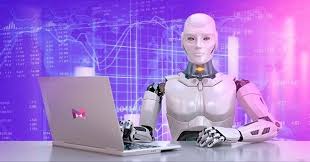Quantum computing is a revolutionary field that has been gaining momentum in recent years, promising to change the way we approach and solve complex problems in science, technology, and everyday life. Unlike classical computers, which use bits as the basic unit of information, quantum computers use quantum bits or qubits. These qubits have unique properties that enable quantum computers to perform certain tasks exponentially faster than their classical counterparts. The impact of quantum computing is already being felt in various fields, and its full potential is yet to be realized.
When it comes to MacBook repair, trust in the expertise and precision of our technicians. From screen replacements to hardware upgrades, they ensure your MacBook is restored to its optimal performance. Experience top-notch repair services for your beloved Apple device.
Discover the top destination for MacBook screen repair at Digicomp LA. Unveil a world of excellence where the experts ensure your device’s screen is flawlessly restored. Their skillful technicians, state-of-the-art equipment, and commitment to quality make them the go-to choice for MacBook aficionados. Enjoy seamless repairs and a rejuvenated device at Digicomp LA.
What Makes Quantum Computing Special?
The power of quantum computing lies in the fundamental principles of quantum mechanics. Unlike classical bits that can be either 0 or 1, qubits can exist in a superposition of states, meaning they can be 0, 1, or any quantum combination of these states simultaneously. This property allows quantum computers to process a vast amount of information in parallel, making them incredibly efficient for specific tasks.
Another crucial property of qubits is entanglement. When qubits become entangled, the state of one qubit is instantaneously connected to the state of another, regardless of the physical distance between them. This phenomenon allows for the creation of quantum algorithms that can solve problems that would be practically impossible for classical computers to tackle efficiently.
Quantum Computing Applications
Cryptography: One of the most significant impacts of quantum computing will be on encryption. Current encryption methods rely on the fact that it would take classical computers an impractical amount of time to break them. However, quantum computers have the potential to quickly factor large numbers, which would render many encryption methods obsolete. As a result, there is a growing need for quantum-resistant cryptographic algorithms.
Drug Discovery: Quantum computing can simulate and analyze molecular and chemical interactions much more efficiently than classical computers. This will greatly accelerate drug discovery and the development of new pharmaceuticals, potentially leading to breakthroughs in healthcare and disease treatment.
Optimization: Many real-world problems involve optimizing large sets of variables, such as supply chain logistics, financial portfolio management, and traffic routing. Quantum computers excel at solving these problems and can lead to more efficient and cost-effective solutions.
Machine Learning: Quantum computing can improve machine learning algorithms by significantly speeding up the training process and enabling more complex models. This can lead to advancements in areas like natural language processing, image recognition, and recommendation systems.
Materials Science: Quantum computers can model and predict the properties of materials at the quantum level, allowing for the development of new materials with tailored properties for various applications, including energy storage, electronics, and construction.
Current Challenges and Limitations
While the potential of quantum computing is immense, there are several challenges and limitations that must be addressed:
Error Correction: Quantum computers are extremely sensitive to errors, and maintaining the integrity of qubits is a significant challenge. Quantum error correction is an active area of research to make quantum computations reliable.
Cost and Scalability: Building and maintaining quantum computers is costly. The technology is not yet widely accessible, and the number of qubits in existing quantum processors is limited. Achieving scalability is a crucial milestone for the technology to become practical.
Algorithm Development: Developing quantum algorithms that take full advantage of quantum computing’s capabilities is a complex task. It requires a significant amount of research and expertise.
The Future of Quantum Computing
The impact of quantum computing on various industries is undeniable. As the technology continues to advance, it will likely lead to profound changes in how we approach problems and make decisions. The race to achieve practical and scalable quantum computers is ongoing, with both private companies and governments investing heavily in research and development.
In the coming years, quantum computing is poised to transform fields ranging from cryptography and materials science to machine learning and healthcare. As these applications become more prevalent, we can expect to see a wave of innovation that will reshape industries and improve our understanding of the world. Quantum computing is not just a technological advancement; it is a fundamental shift in our approach to problem-solving and the way we interact with the digital universe. Its full impact is yet to be realized, but the possibilities are truly limitless.




